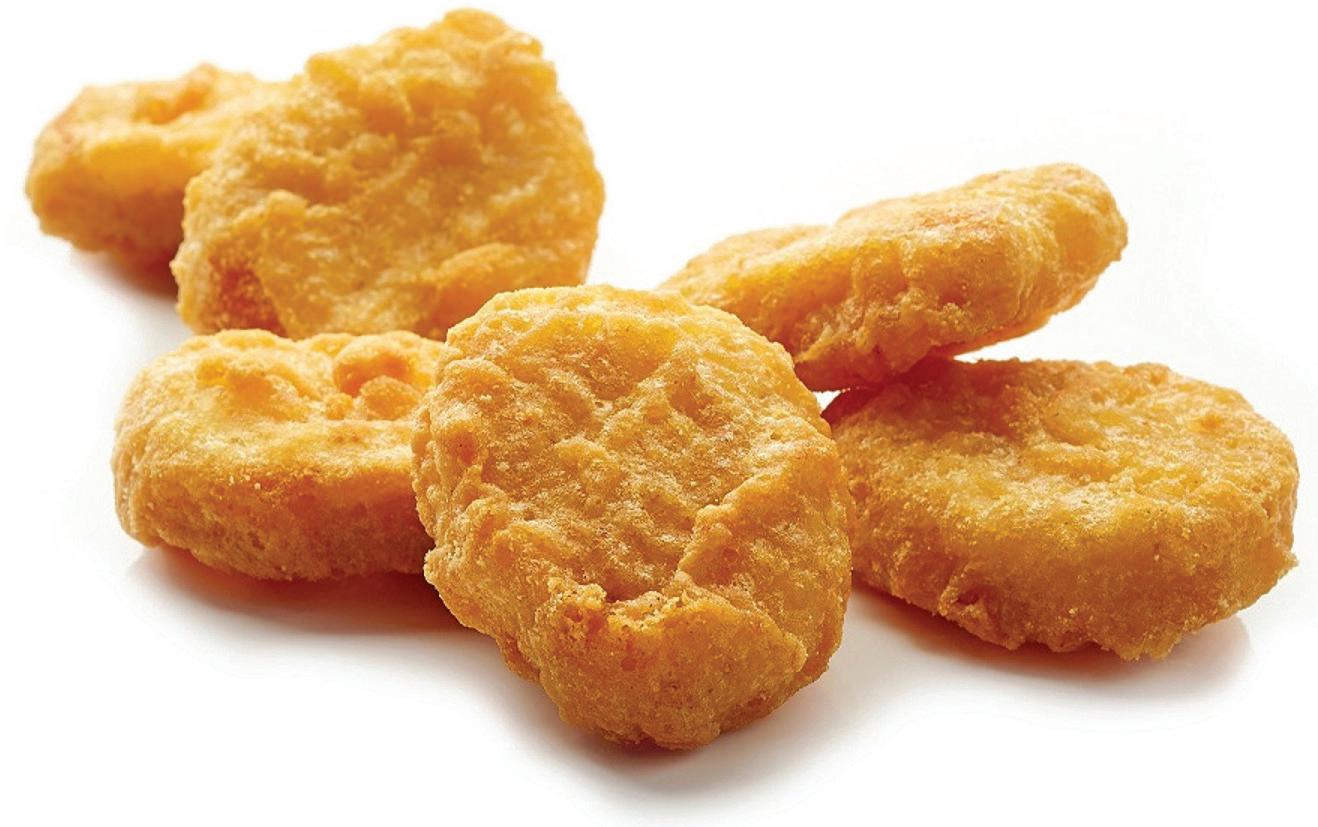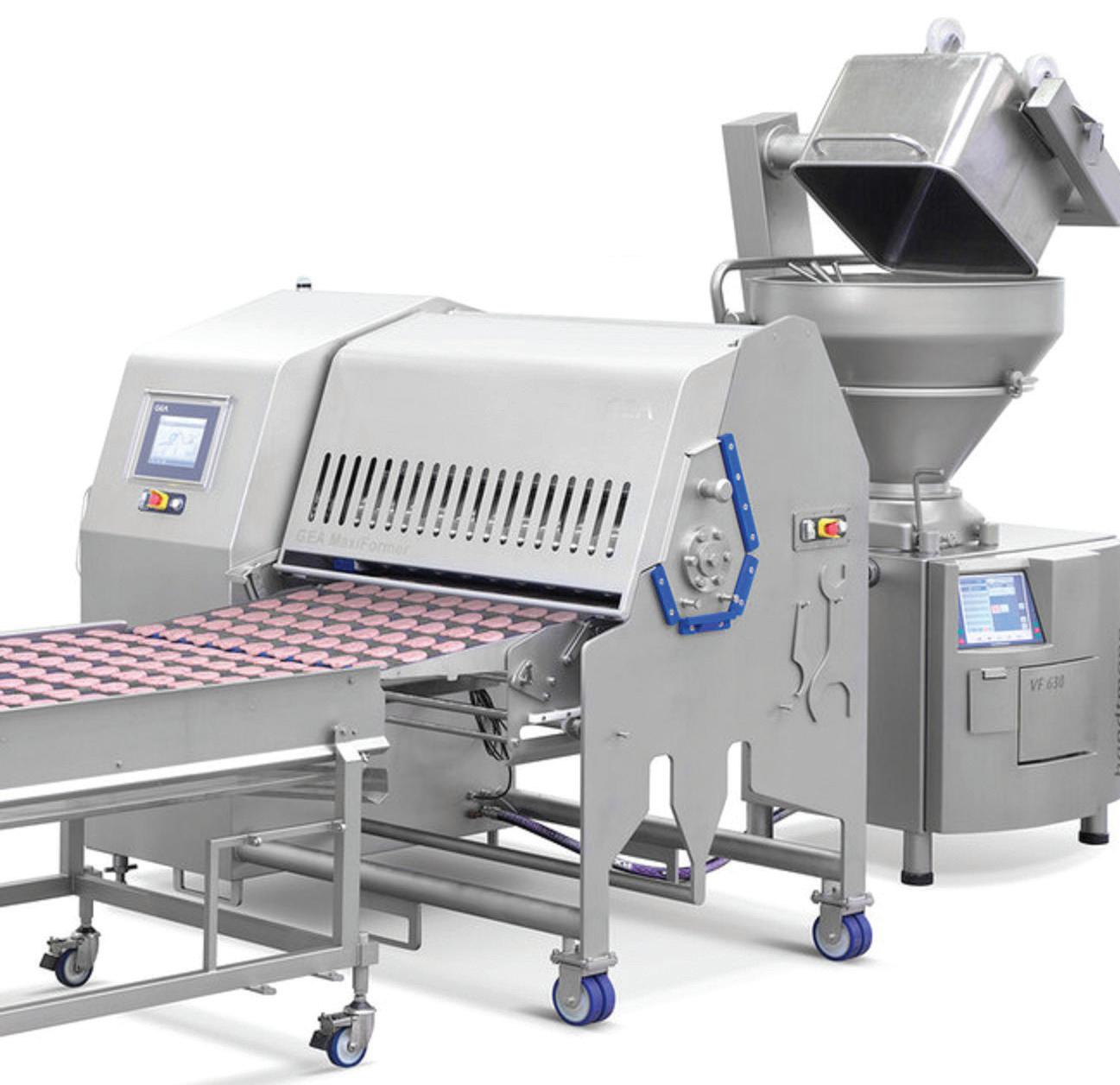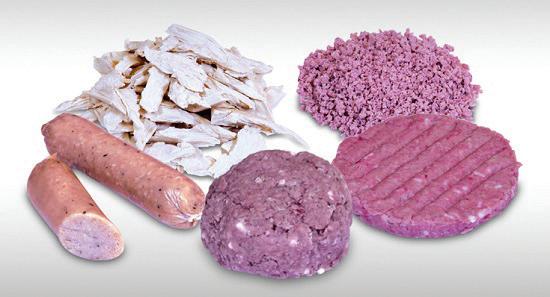
5 minute read
FOOD PROCESSING
STEPPING UP TO THE PLATE: GEA’S COMPLETE SOLUTION FOR CHICKEN NUGGETS
The global processed food industry is expected to experience significant growth in the next few years as meal consumption behaviour amongst consumers is shifting drastically. Convenience foods like chicken nuggets remain extremely popular, with many people choosing this classic meal when they are pressed for time or for on-the-go consumption.
Advertisement
Meeting the demand for one of the world’s most popular fast food items takes a lot of nuggets, which is where GEA has stepped up to the plate. GEA is now offering a completely automated line solutions that can process tons of them per hour, taking only six minutes for a nugget to complete the production line.
One of the world’s leading suppliers of high-tech food processing equipment, GEA has perfected technology that takes the product from meat delivery through grinding, mixing, forming, coating, cooking, frying and freezing in one seamless, fully automatic process. The result – perfectly formed crispy on the outside, juicy on the inside, golden chicken nuggets that go down a treat with consumers.
GEA offers a complete data-connected production set-up that ensures consistent high-quality products making efficient use of resources, energy and labor in meat manufacturing. Key to the whole process is the GEA MaxiFormer that features a unique step-fill system which fills each cavity consistently to ensure excellent shape retention without peaks on the filling or wastage from smearing.
Explaining the benefits for food manufacturers of having a single supplier of all the production equipment needed to process chicken nuggets, Luuc van Lankveld, GEA’s Product Expert on Processing said: “Having different suppliers means that the customer is responsible for the integration of the machines in the line. We can provide a complete solution, taking that stress away and saving manufacturers time and money.”
Leading supplier of cooked chicken products Danpo installed its first fully automated chicken nugget line at its plant in Farre, Denmark. Product Technical Manager Per Ulrik Jørgensen commented, “with GEA delivering all the equipment on the line we knew for sure that each element would fit together and be compatible and the step-filling feature means that we can run with a slightly higher temperature on the meat prior to forming so we
also save on energy costs.”
For tempura coated nuggets, getting the mixture just right so as to achieve that vital crisp and crunchy texture is a fine art. The nuggets need to be cooked perfectly from start to finish to prevent them from sticking together, and consistently ensuring the correct cooking temperature throughout the process is essential in preventing the delicate coating from becoming soggy, leading to food waste.
GEA prides itself on being a tempura coating expert, with equipment such as the TempuMixer and a specially designed fryer handling this delicate process with ease. In conjunction with the MaxiFormer, the system is capable of running continuously for up to 40 hours with very little supervision, meaning staff can be deployed on other tasks.
The formed and coated nuggets are flash fried -- GEA’s frying equipment is designed to meet the highest food safety standards – before going through the GEA CookStar three-phase spiral oven, where steam and heat are added. Steam contains a lot of latent heat and is therefore very effective in transferring energy into the nugget. Due to the higher humidity less moisture is lost, therefore producing higher yields.
The freezing processes are also extremely temperature-sensitive, with batches of chicken nuggets frozen to minus 18 degrees Celsius, for distribution and further cooking.
Having a fully automated line with equipment from one supplier reduces potential production issues as the manufacturer knows that each element of the line fits together and is compatible, which is important to ensure fast installation and reliability right from the start to the end of the whole process.
In addition to supplying the equipment, GEA’s food technologists are on hand to provide

customer support and guidance that takes the guesswork away. Luuc commented: “Everything is important. The mixing of ingredients, the cooking temperatures, the way you apply the coating to ensure that satisfying crispy crunch, feel and taste. As a solution provider we know the business from A to Z and employ food technologists to help meet specific customer requirements and optimize the whole process.”

For more information, visit www.gea.com
Baker Perkins has been awarded UK government funding for a project to further develop twin-screw extrusion capability to produce Texturised Vegetable Protein (TVP) as a meat substitute.
The purpose of Baker Perkins’ project is to develop new technology for the commercial production of meat substitutes using, for the first time, flour from locally available whole beans and pulses as the main ingredient, rather than expensive and highly processed pulse protein isolates. It will also investigate ways of achieving the desired range of textures using purely processing techniques or label-friendly ingredients, rather than additives.
The project will extend Baker Perkins’ existing capability for High Moisture Extrusion Cooking (HMEC) and Low Moisture Extrusion Cooking (LMEC) of TVP ingredients for ready meals.
TVP in various forms has been used as a meat substitute since the 1960s. It is also used as a meat extender in conjunction with real meat in products aimed at environmentallyconcerned or health-conscious consumers. Most products currently being launched are completely meat-free for vegans and vegetarians, but there is significant acceleration in the market for extenders among consumers willing to cut down on meat for environmental or health reasons, but unwilling to compromise on taste and texture.


Keith Graham, Business Development Manager, says, “The UK food industry will benefit from this project by being able to respond to demand for environmentallyfriendly and clean-label meat substitutes using ingredients that could be grown and/or processed in the UK. As the demand for these products is increasing worldwide, UK food processing and equipment companies will benefit from export opportunities.”
Twin-screw extrusion is already widely used in the food industry. Baker Perkins equipment has been at the forefront of this technology for many years, including the TVP sector. We operate a fully equipped pilot-scale lab and are working on this project with UK ingredient supplier New Food Innovation. We also have access to food scientists through links with Sheffield Hallam University and Campden BRI.
“With the expertise, experience and resources these organisations are able to bring to bear over and above the Innovate UK funding, Baker Perkins expects to be able to develop solutions quickly and cost effectively. The potential benefit to the UK economy in growing and processing home-grown ingredients to supply a multimillion pound home and export market, plus technology exports, is many times the cost of the grant” says Keith Graham.
For more information, visit www.bakerperkins.com










